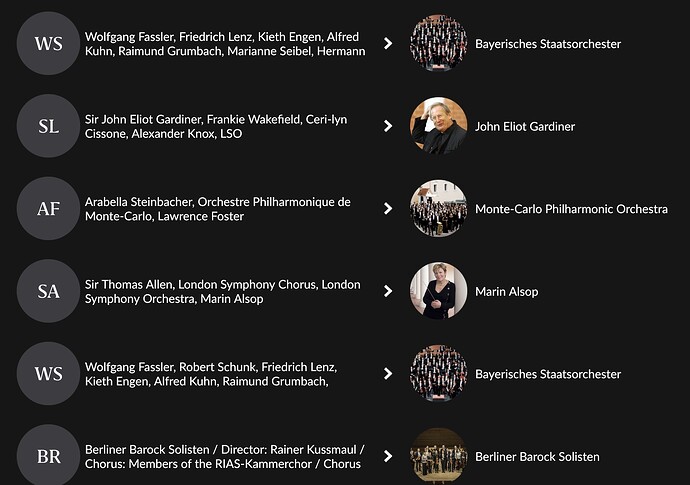Hi, this is my first post - having used Roon for a short time only (a month or so), basically since Sonos ruined their software and I decided to do something about it - with Roon included as an element.
I didn’t know Roon other than by name before, wasn’t sure what it was. But having tried it out and become a daily user of it, I feel that it is a much bigger product, delivering a much greater experience than I could have imagined.
However, I see a number of typical problems. Also older posts describing the same but always with a reply that sort of fixes the problem. So I wonder if I am the only one experiencing such as:
- After a rescan, forced or automatic, some albums do not show up in the Added part of Recent Activity on the front page - but they are in the collection anyway, I just need to search for them.
- Many, many albums do not cross-link in the system, meaning that they are not shown on the pages for the composers, for instance, and it takes a number of strange activities to bring some of them in place - even though it doesn’t work for all of them. Activities such as removing the composer from an “Ensamble” role of the album, or changing the original file’s compuser name from “First-name Last-name (born - dead)” to just the name, or adding the composer as a “Primary Artist Link” on the album - or whatever change can work for the individual album, which is not the same each time.
- Albums are often split into several smaller albums when being scanned, resulting in, e.g., 3, 4 or even more albums that I then have to combine into one. Albums with multible CDs are almost never recognized as such but will need to be combined by me manually (with hundreds of those it actually requires a serious amount of work).
- Many albums have been equipped with extreme amounts of credits - several hundreds - including lots of composers, so that they show up in the lists of composers who had nothing to do with them.
- There is often somewhat of a mess in the metadata, which doesn’t follow a particular style - meaning that I must adjust the metadata for each and every of thousands of albums.
Well, some additional problems have been seen, not the least about links to artists not being available when updating metadata for an album, but I have learned to just add an album from Tidal first, then things work with my own collection afterwards (quite silly concept, if you ask me). Other problems I also found solutions for, and a couple of smaller things do not matter in real life.
I have, so far, something like 50,000 files in the library most of them FLAC in CD quality. I am still ripping, so about 5,000 or so additional files will be added, and I am additionally replacing those maybe 10,000 MP3 files still left with FLACs. This has been, as the third incarnation of the setup, placed on an ROCK, consisting of an Intel NUC with i3 processor (2 cores/4 threads),16 GB RAM and a 500 GB SSD - the files are on a Synology 218 NAS, connected through a 1 Gb network cable and switch.
I hear all kinds of music, but according to the Roon statistics (which is based on somewhat wrong metadata about styles) more than half is classical, a lot being new age, avant-garde, easy listening, and progressive rock - and even some contemporary pop/rock. To this I can add that I have music from all over the world, some of it from local record companies, and Roon is definitely better at recognizing the mainstream American or UK records than most others.
In general, speeds are good all over, but at rare occasions there is a small delay or slow-down in the user interface. Not sure what causes it, but after a couple of minutes everything is good again. Since I moved to the ROCK, rescans are not affecting performance, and neither are adding files to the NAS (including other uses of the NAS).
I am very happy with the software, as it allows me to listen gapfree in high quality over the Bluesound an WiiM devices I have got, listening to long queues of all kinds of music, and I like the almost seemless blend of my own collection and Tidal, for the first time making it appear reasonable for me to have such a service as Tidal. And even though I was happy with Sonos years ago, Roon is many times better.
But I do feel the pressure from the lots of work I have to put into bringing the collection and its metadata up to a useful state where I can find things and do such as play all albums by a particular artist, etc. - that requires that they are findable and collectable in someway; not hidden in a wrong corner of the system.
But maybe it is only me?

